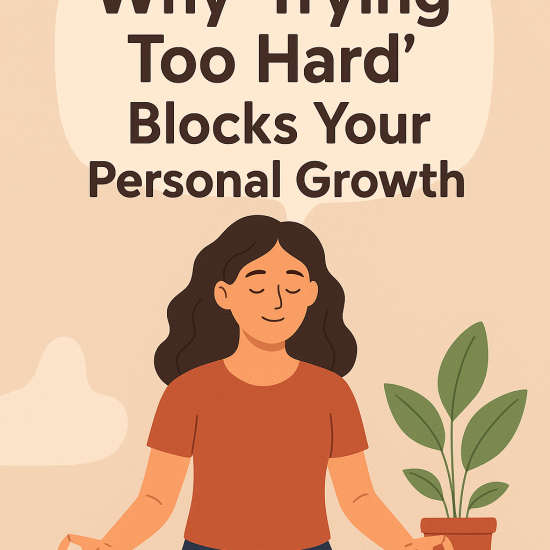In school, we’re taught to treat the grade point average (GPA) as the ultimate measure of success. Parents beam when it’s high, teachers use it to track performance, and students sometimes obsess over every decimal point.
But once you step beyond the classroom, you quickly realize something: life and career aren’t scored like an exam. What truly determines your success isn’t a number on a transcript, it’s your personal development.
Personal development is the ongoing process of improving your skills, mindset, confidence, and resilience. While GPA reflects your academic achievements at a specific point in time, personal development shapes who you are for the rest of your life.
GPA vs. Personal Development: The Key Distinction
Think of GPA as a snapshot it captures your performance in a controlled environment with clear rules, deadlines, and expectations. Personal development is the full documentary it shows the twists, turns, and growth that happen in real life.
- GPA measures academic mastery: How well you’ve done on exams, assignments, and projects.
- Personal development measures life mastery: How well you can adapt, communicate, problem-solve, and lead.
One can exist without the other. You can have a perfect GPA but lack the soft skills to thrive in the workplace, or you can have an average GPA but a high level of personal development that propels you forward.
Why Personal Development Matters More in the Long Run
1. Skills Are the Real Currency
Grades are academic currency, but skills are life currency. Employers, clients, and collaborators care far more about whether you can solve problems, manage time, lead a team, or navigate complex situations than they do about whether you got an “A” in biology.
For example:
- An engineer who can explain complex systems clearly will advance faster than one who struggles to communicate—even if the latter had a slightly higher GPA.
- A marketer who understands human behavior and can adapt strategies will outperform one who only knows textbook definitions.
Personal development self-work focuses on building these skills deliberately.
2. Confidence Outperforms Numbers
A 4.0 GPA might land you an interview, but confidence will help you ace it.
Confidence isn’t arrogance it’s the quiet assurance that you can handle what’s in front of you. This comes from experience, practice, and stepping outside your comfort zone things GPA doesn’t measure.
Personal development boosts confidence through:
- Public speaking practice
- Networking and relationship-building
- Taking calculated risks and learning from them
Confidence opens doors GPA can’t even knock on.
3. Resilience Is the True Career Insurance
Life isn’t a syllabus with predictable deadlines. Jobs get cut, markets crash, projects fail, and personal challenges arise without warning. A GPA doesn’t prepare you for those realities but personal development does.
Through personal development, you learn:
- How to recover from failure
- How to stay motivated in uncertainty
- How to adapt to changing conditions
These traits make you future-proof in ways grades never can.
4. Adaptability Keeps You Relevant
Industries evolve quickly. Technology you learned in school might be outdated within a few years. Personal development self-work means you’re committed to learning continuously whether it’s a new skill, a new role, or a new way of thinking.
A high GPA shows you learned well in the past. Adaptability ensures you keep learning in the future.
5. Your Network Grows with Your Growth
GPA doesn’t build relationships personal development does.
The more you work on your emotional intelligence, communication, and collaboration, the more meaningful connections you’ll make. Those connections often lead to opportunities that grades alone could never provide.
A well-developed network can:
- Introduce you to mentors
- Open job opportunities
- Provide diverse perspectives that accelerate your growth
How to Develop Yourself While Still Caring About GPA
The good news? You don’t have to choose one or the other. You can maintain a solid GPA while focusing on personal growth. Here’s how:
1. Set Goals Beyond the Classroom
Instead of only aiming for an “A” in every course, add personal development goals:
- Learn a new skill each semester (coding, public speaking, photography, negotiation)
- Attend a workshop or conference
- Volunteer for a cause you believe in
These experiences give you stories and skills that grades can’t.
2. Practice Self-Awareness
Regularly ask yourself:
- What are my strengths?
- What areas do I want to improve?
- What kind of person do I want to become?
Self-awareness is the foundation of personal development because it directs your growth toward meaningful outcomes.
3. Build Soft Skills Intentionally
Join student organizations, lead projects, or participate in debate clubs. Seek roles that challenge you to collaborate, lead, and solve problems creatively. These soft skills often make the difference between being a good employee and being a great one.
4. Seek Feedback (and Use It)
Feedback is one of the fastest paths to growth. Whether it’s from a professor, manager, or peer, listen carefully, thank them, and take action on it. This habit will help you evolve faster than someone who hides behind their grades.
5. Invest in Your Health and Well-Being
Personal development includes caring for your mind and body:
- Exercise regularly to boost energy and focus
- Practice mindfulness or meditation to handle stress
- Get enough rest so you can perform well in all areas of life
Without a healthy foundation, neither GPA nor personal growth will be sustainable.
The Long-Term Payoff of Personal Development
When you prioritize personal development, you’re investing in assets that never expire:
- Career Growth – You’ll have the confidence and skills to take on leadership roles, manage teams, and adapt to market changes.
- Better Relationships – Personal growth helps you understand others, communicate effectively, and navigate conflicts constructively.
- Self-Fulfillment – Achievements are sweeter when they’re aligned with your values and passions. You’ll feel a sense of purpose that GPA alone can’t provide.
Real-World Proof
- The Entrepreneur Who Never Graduated – Richard Branson and Steve Jobs thrived not because of grades, but because of vision, creativity, and persistence.
- The Career Pivoter – Countless professionals have successfully switched industries because they developed adaptability, resilience, and a willingness to learn traits born from personal development.
- The Leader in the Room – In meetings, it’s often the person who inspires, organizes, and problem-solves that stands out, not the one with the best academic record.
Changing the Success Formula: From “Grades First” to “Growth First”
This isn’t about dismissing academic achievement it’s about expanding the definition of success. GPA can be part of your toolkit, but personal development is the entire workshop.
When you shift your focus to growth:
- You develop skills that are transferable to any role or industry.
- You build confidence that helps you seize opportunities.
- You cultivate resilience that keeps you moving forward no matter what happens.
A GPA might get you through the first door, but personal development ensures you can walk into any room and thrive.
The world doesn’t just need high scorers it needs adaptable, empathetic, resourceful people who can keep learning, lead with integrity, and handle the unexpected.
So yes, work hard in school. But also say “yes” to opportunities that challenge you, meet people who inspire you, and take time to reflect on who you’re becoming.
Because when the ink on your transcript fades, it’s your personal development self that will still be shaping your future.





